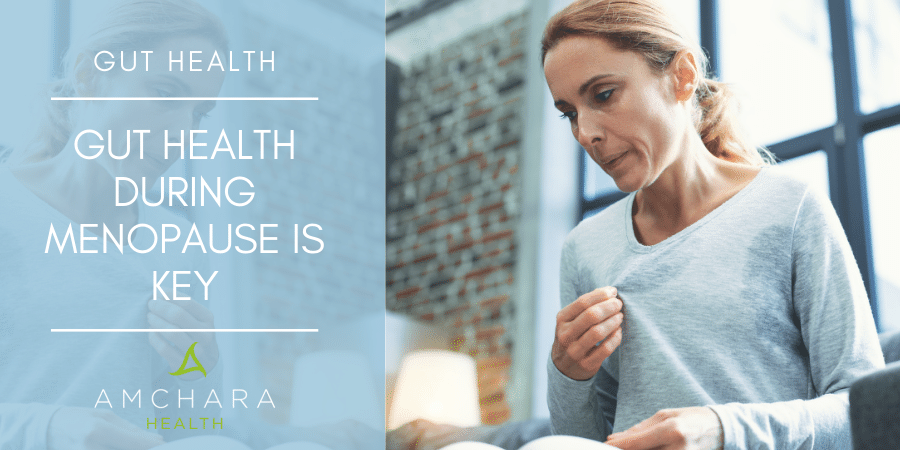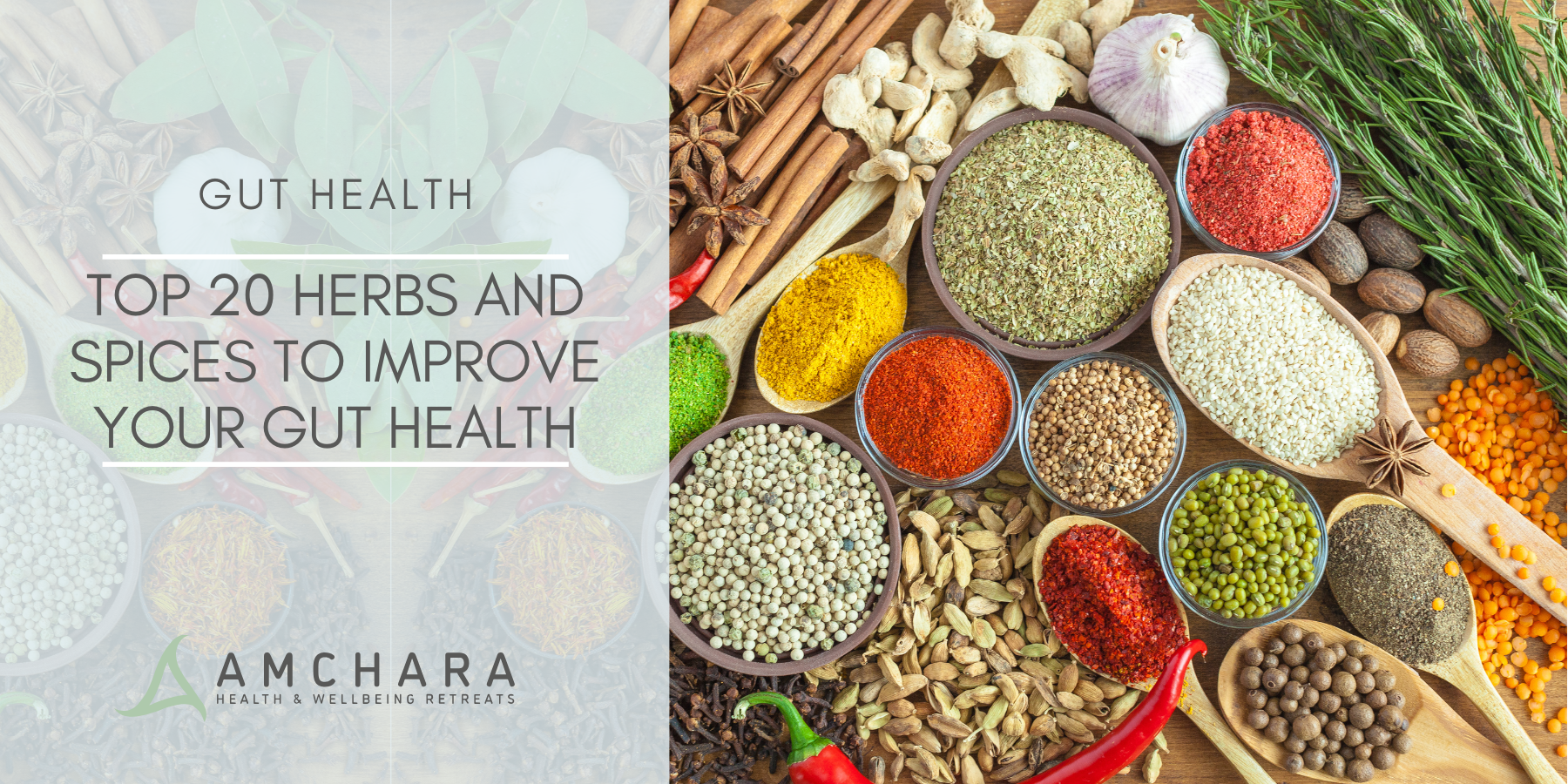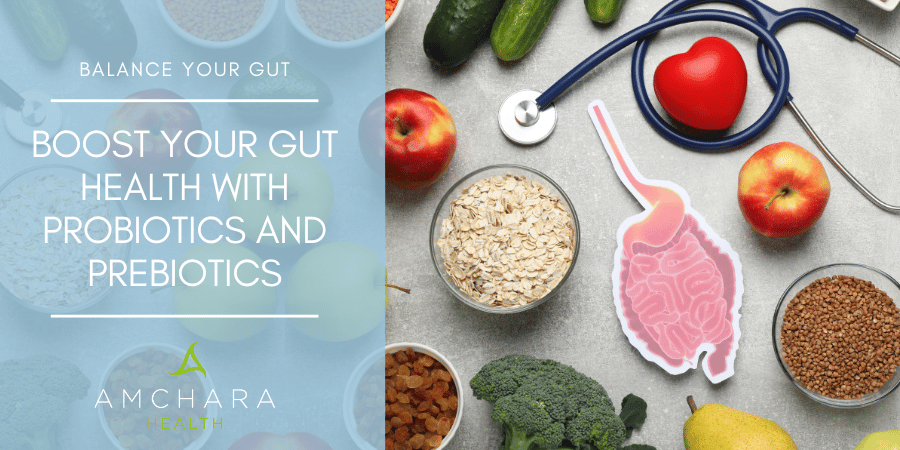Topics Covered in this article:
Increasing evidence demonstrates the importance of gut health for your overall health and wellbeing, influencing diverse aspects such as heart health, weight management, the central nervous system and the immune system.
During the menopause, there is a decline in oestrogen (the hormone responsible for the development and regulation of the female reproductive system), which can directly affect your gastrointestinal function in several ways.
In the modern internet world there is an overwhelming amount of information; it can be hard for you to find health advice that you can trust, particularly as the main media channels are typically dominated with a single, orthodox narrative.
We always take an evidence-based approach, orientated towards a holistic and Personalised Health approach, and aim to provide you with actionable knowledge and tips to help you on your journey to optimal health.
In this article, we will take a closer look at the connection between gut health and the menopause and how you can support your health during this life transition.
The gut microbiome
The collection of millions of bacteria, fungi, viruses and other microorganisms in your gut is referred to as the gut microbiome. A diversity in the gut microbiome is key to supporting many aspects of health. Specific microbiomes, referred to as the estrobolome, work to regulate circulating levels of oestrogen, and impacting how the body enables oestrogen to be turned into active forms.
Oestrogen works with the good bacteria in your gut, so when you experience a decline in oestrogen, this can impact the overall balance of bacteria, as well as how oestrogen is absorbed and activated, which can affect gut functioning as well as influencing mood, as a result of the complex relationship between the gut and the brain.
This decline in oestrogen can also result in weaker tissues lining the digestive tract, which can increase the likelihood of developing ‘Leaky Gut’ (when gaps form between the cells lining the digestive tract), which in turn can lead to increased risk of developing food intolerances, as well as slowing digestion and contributing to blood glucose imbalance.
Nutrition
Studies have indicated that probiotic supplementation can alleviate some menopausal symptoms. Although such studies are inconclusive regarding whether probiotic supplementation can actually affect the levels of sex hormones during the menopause, taking probiotic supplementation regularly is a good way to support the overall health of your gut microbiome.
You may choose to increase your intake of probiotics through food – good options include fermented foods such as yoghurt, sauerkraut, kefir, kimchi, miso and kombucha.
Eating a diverse range of food overall will support the diversity of your gut microbiome, so include whole foods regularly such as legumes, fruit and beans which contain high levels of beneficial fibre, and prebiotic foods to support the growth of good bacteria – oats, apples, bananas, artichokes and leeks are good options.
Eating phytoestrogens, which mimic the lost oestrogen, can help you regain your balance – choose soy products such as miso, tempeh and tofu, beans, potatoes, apples and dates, as well as sesame and flax seeds and oats.
Antibiotics
Research shows that antibiotics can kill harmful bacteria, hence their benefits and use as medicine. An unfortunate side effect is that they also kill healthy gut bacteria, as well as preventing good gut bacteria from growing.
However, the impact of this ‘collateral damage’, as a side effect of taking antibiotics, can be mitigated. If you are taking, or have recently taken, a course of antibiotics, you can boost your gut health naturally by increasing your intake of probiotic foods.
Stress
During the menopause, fluctuating oestrogen levels can make it harder to control and regulate cortisol (the ‘stress’ hormone), which can lead to increased stress levels.
Excessive or chronic stress can impact your digestive health – too much cortisol slows down the digestive system, which can contribute to digestive complaints such as bloating and constipation.
Taking simple steps to alleviate your stress can help – try talking to a friend to relieve some of your worries, taking regular aerobic exercise and practicing yoga and meditation.
Magnesium
You may benefit from increasing your magnesium intake. Magnesium can support your body in relieving digestive issues such as flatulence and constipation, as well as minimising menopausal mood swings. Magnesium rich foods include leafy greens, whole grains, mackerel, bananas and pumpkin seeds.
Supplements
Popular supplements to support your overall health during the menopause include the following:
- Black Cohosh – to alleviate hot flushes
- Calcium – to prevent bone loss
- Vitamin D – to help absorb calcium
- Ginseng – to improve sleep and boost mood
- St. John’s Wort – to control mood swings
Supplements can be an effective way of improving your health, but some people may experience side effects; if you have any chronic health conditions, always consult your doctor before taking any supplements.
Takeaway
Why not come to Amchara for a relaxing detox health retreat in our tranquil surroundings?
With expert advice on hand from our experienced practitioners, you can benefit from personalised health advice, tailored to your needs and goals to support you during the menopause and help you maximise your health gains.
Juicing and fasting may be recommended, according to your personal situation and unique health needs. You will be immersed in a supportive and nurturing environment that enables you to switch off, relax and kickstart your health journey, including physical activities and empowering, educational talks.
Or you could try Amchara Juicery – cold-pressed, nutritious juices delivered to your door to help you boost your health, naturally. Created by Amchara’s expert in-house health team, you can enjoy a range of fresh, organic juice cleanses (and super soups) at home.
Articles you might be interested in:
- Exercise and menopause
- Amchara’s approach to gut health
- Antibiotics and Gut Health
- Gut health and your microbiome




